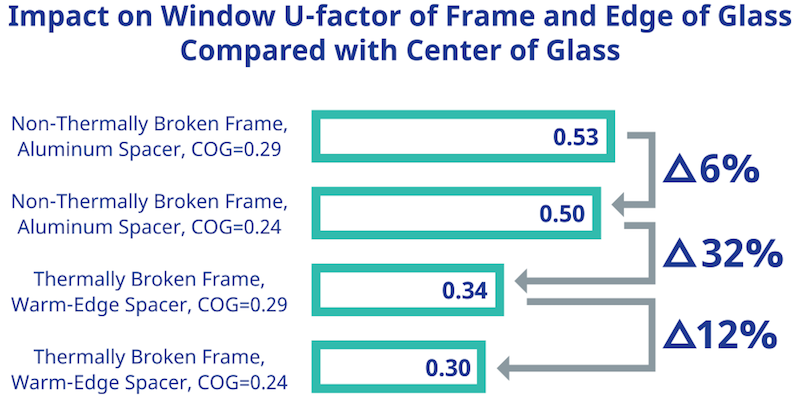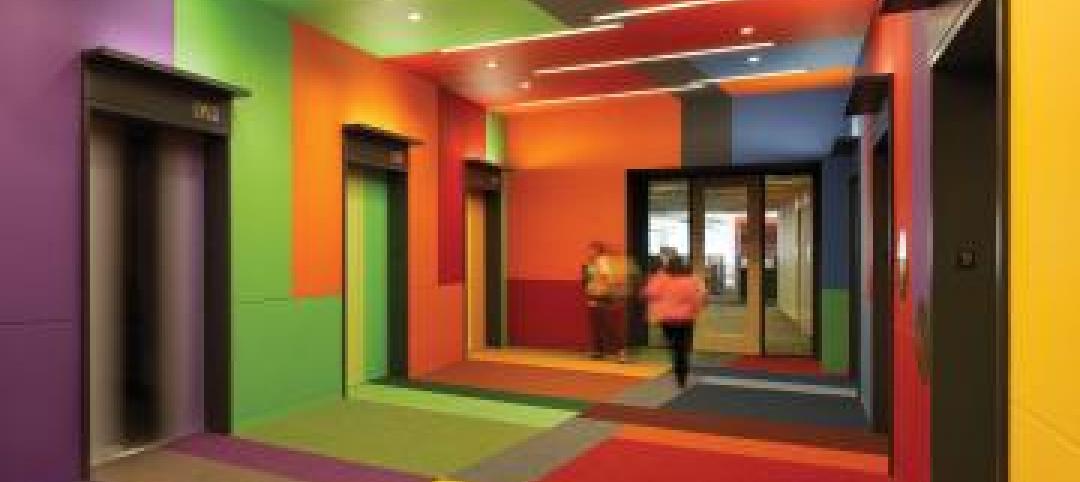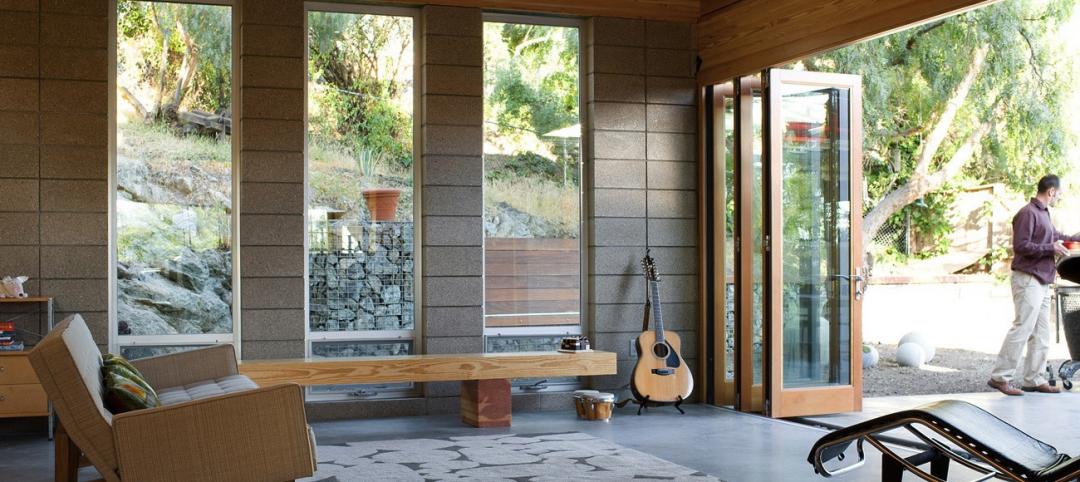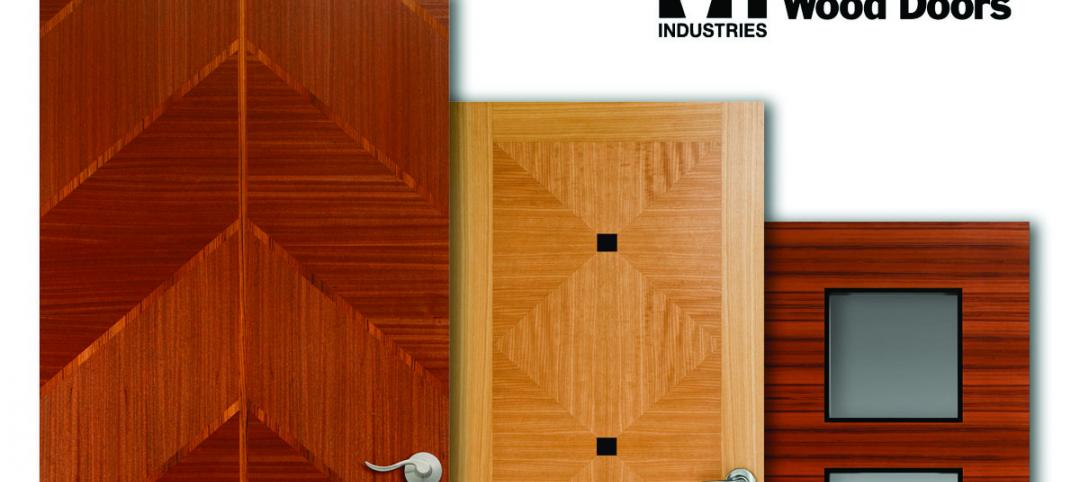Over the years, our industry has relied heavily on reducing the center of glass (COG) U-factor as a way of driving down overall fenestration U-factors (thermal transmittance). Strategies have included increasing the performance of low-emissivity (low-e) coatings, using multiple coatings, addition of inert gases, and more recently, moving to triple-pane units. However, the COG U-factor makes up only part of a window’s performance. To achieve the lowest fenestration thermal transmittance and highest condensation resistance, it is necessary to look more broadly at the window as a system, including the edges: The frame and edge of glass (EOG).

 Think of a window as the thermal equivalent of damming a river at its center, yet forgetting to block water flow all the way to its banks.
Think of a window as the thermal equivalent of damming a river at its center, yet forgetting to block water flow all the way to its banks.
Focusing on preventing heat flow through the COG only is the thermal equivalent of damming a river at its center, but not spanning the entire river. In the case of the river, the water just flows around the edges. Likewise, in the case of the window, the energy still flows through it even if the COG conductance is low. It does so by taking the path of least resistance around the edges of the window – through the frame and EOG.
 Whole fenestration U-factor as a function of center of glass (COG), edge of (EOG) and frame thermal performance.
Whole fenestration U-factor as a function of center of glass (COG), edge of (EOG) and frame thermal performance.
The graph illustrates how the window U-factor varies with the COG, frame and EOG (spacer) performance, and demonstrates how the specifications of the edges of a window control the overall U-factor performance. The data confirms that when specifying a fenestration system, the first focus should be on improving the performance of the frame (biggest influence) and EOG before specifying the COG package. Spec the edge.
Having a high-performance edge is an enabler for achieving a high-performance window system, and it can provide greater flexibility in glass choice because the highest COG U-factor may not be needed. A top-performing frame can achieve the same performance with a dual-pane glazing as a poorer-performing frame with triple-pane glazing.
Because condensation resistance is also driven by thermal bridging (or lack thereof) at the fenestration edge, improving frame and EOG thermal performance first has a dual benefit of increasing performance on this dimension too. For the example above, the condensation resistance of the non-thermally broken window wall is only 40 compared to 53 for the thermally broken system.
The moral of the story is that when designing windows for thermal and condensation-resistance performance, start with the edge first. Doing so delivers higher performance and more flexibility, reduced complexity and potentially reduced cost for the glazing in-fill. In other words, before getting caught up in the middle, spec the edge. To learn more, visit https://spectheedge.com/
Related Stories
| Dec 10, 2013
16 great solutions for architects, engineers, and contractors
From a crowd-funded smart shovel to a why-didn’t-someone-do-this-sooner scheme for managing traffic in public restrooms, these ideas are noteworthy for creative problem-solving. Here are some of the most intriguing innovations the BD+C community has brought to our attention this year.
| Nov 15, 2013
New Nanawall Systems website opens up expanded vistas for architects
Renowned maker of operable glass walls unveils powerful and mobile-friendly website
| Oct 15, 2013
Sustainable design trends in windows, doors and door hardware [AIA course]
Architects and fenestration experts are looking for windows and doors for their projects that emphasize speed to the project site, a fair price, resilient and sustainable performance, and no callbacks.
| Sep 9, 2013
Top 25 continuing education courses on BDCuniversity
An overview of the 25 most popular continuing education courses on BDCuniversity.com.
| Aug 13, 2013
Wausau acquires Custom Window in Colorado
Apogee Wausau Group, Inc., doing business as Wausau Window and Wall Systems, has acquired the assets of Benchmark Sales Agency, Inc., doing business as Custom Window Company, Inc., to expand Wausau’s product offering and U.S. geographic reach. Terms of the purchase were not disclosed.
| Jun 28, 2013
A brief history of windows in America
Historic window experts from Hoffmann Architects look back at the origin of windows in the U.S.
| Jun 13, 2013
Panda Windows and Doors to showcase thermally broken custom products at 2013 AIA Expo
For over 20 years now, Panda Windows and Doors has been leading their industry in handcrafting elegant systems customized to meet the needs of a wide range of clients, from the residential to the commercial to the private. And with two recently introduced products – the Thermally Broken Slim Profile Lift & Slide (TS.87) and the Aluminum/Wood Clad Thermally Broken Lift & Slide (TS.13) – completely unique in the North American market; they are poised to continue innovating top-quality weather-stripping systems.
| Jun 3, 2013
LaCantina Doors named to list of fastest growing private companies
LaCantina Doors earns coveted spot on San Diego Business Journal’s 10th Annual Survey
| May 31, 2013
VT Industries opens new doors with Comsense software integration
VT Industries announced today the integration of VTonline, the company’s door bidding and ordering portal, with Comsense™, the leader in the development of software solutions for the door and architectural hardware industry.
| May 17, 2013
5 things AEC pros need to know about low-e glass
Low-emissivity glasses are critical to making today’s buildings brighter, more energy-efficient, and more sustainable. Here are five tips to help AEC professionals understand the differences among low-e glasses and their impact on building performance.
















